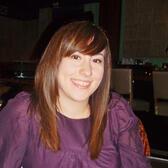Eating Jewish: Scacchi (Italian Matzah Pie)
When Passover rolls around, many people bemoan having to eat matzah with only a minority of people actually professing to liking it. Some of the complaints against it have to do with its dryness and cardboard-like taste. Yet what I like about matzah is its almost infinite ability to pair well with a variety of ingredients and its versatility to be used in numerous dishes. These include the beloved and oft debated (sweet or savory?) matzah brei, matzah lasagna, matzah pizza, matzah kugel and even spanakopita made with matzah instead of phyllo dough. Dishes that have been modified and use matzah instead of an ingredient that is forbidden for the duration of Passover have been part of the food culture of the Jewish community for a long time, with both Ashkenazi and Sephardic Jews doing so. Within the Sephardic community, various communities have long made savory pies using matzah.
These savory matzah pies are known by a variety of names, depending on the community in which it is being prepared. In Spain and Turkey they are known as mina, Algerians call them méguena, while in Egypt they are known as either maiena or mayena, and as the title to this post suggests the Italian Jewish community calls them scacchi. These matzah pies are modeled after the savory pies that are so central to Sephardic cuisine, and particularly resemble the pastel. Traditionally, these pies have been served as an appetizer or side dish on Shabbat as well as on other holidays. Wanting to be able to continue to serve pastel during Passover, matzahs that have been moistened with water or broth were substituted for the customary pastry. Meat filled matzah pie has become a mainstay at Sephardic seders and are generally served following the soup and the fish dishes, before the main course. Vegetable or dairy versions can be found at the desayuno (brunch) on Passover morning, at which it is served with huevos haminados (long-cooked eggs) and lemon wedges.
In this version of scacchi, I chose to mix a meat filling with a vegetable filling that Joyce Goldstein created for a double crusted vegetable pie but also suggested could be used for this Passover dish. Although the meat filling would have been a delicious choice on its own, I wanted to have a slightly lighter filling that included some vegetables to represent spring’s bounty. With this filling you have meat that is subtly spiced with cinnamon that lends some warmth and sweetness, while the artichokes and the spinach provide an element of freshness. The combination of these ingredients creates a delicious filling that would also be great in borekas or a pastel, once Passover has ended. This dish would be delicious as a light lunch or supper, served alongside a salad, while it could also work as a side dish as part of a larger meal. So go ahead and try it, I’m sure it will soon become one of your own Passover staples!
Scacchi (Italian Matzah Pie)
Adapted from Joyce Goldstein’s Cucina Ebraica
6 tablespoons olive oil
2 small onions, chopped
1 pound ground beef
1 small jar of marinated artichoke hearts (I used a 340 ml but it would be increased to 500 ml), drained and chopped
1 pound spinach, coarsely chopped
4 tablespoons fresh flat-leaf parsley, chopped
1 ½ teaspoons ground cinnamon
½ teaspoon freshly grated nutmeg
Salt and pepper, to taste
5 matzahs
4 eggs
1 cup chicken or vegetable broth
-
Warm 2 tablespoons of olive oil in a pan over medium heat. Add one onion and sauté until the onion is soft, about 5 to 6 minutes. Raise the heat to medium high and add the beef and the cinnamon. Cook until the meat starts to brown, about 10 minutes. Remove from the heat, season with salt and pepper and stir in 2 tablespoons of parsley. Set aside.
-
Warm two tablespoons of olive oil in a pan over medium heat. Add the second onion and two tablespoons of parsley, and sauté until the onion is soft, about 5 to 6 minutes. Add the artichokes and the spinach to the pan. Reduce the heat to low and cook slowly until the mixture is dry, 10 to 15 minutes. Season with salt, pepper and nutmeg. Mix with the beef mixture and set aside.
-
Preheat over to 350 degrees. Brush two 8 x 8 square baking pans with 1 tablespoon of olive oil each (I used two baking pans because that’s what I had on had but you could also use one bigger pan).
-
Soak the matzahs in warm water to soften, about 1 to 2 minutes. You want them to be slightly soft and pliable but not mushy. Line the baking pan with matzah, spread with the vegetable and meat mixture and cover with another matzah. Continue with these layers until your pan is filled. In my case one pan had 2 layers and the second pan had one layer. In a bowl, whisk together the eggs and the chicken broth and pour evenly over the matzah pies (I would suggest to pour a bit more of the mixture over the matzah pie with more layers), and shake the pans to distribute the liquids evenly.
-
Bake until golden brown, 20 to 25 minutes. Remove from the oven and let stand for 10 minutes before serving.







